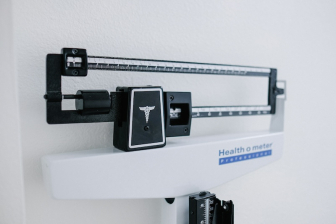Is there a new medicine against Alzheimer’s [2024]?
Last updated: 04 December 2024
![Is there a new medicine against Alzheimer’s [2024]?](https://everyone.org/media/magefan_blog/harrison-leece-ii6BOPjAtVY-unsplash_1_.jpg)
You can legally access new medicines, even if they are not approved in your country.
Learn howThe search for a new medicine against Alzheimer's disease is actively ongoing around the world. Since 2022, there have already been more new medicine approvals in the field than in the previous decade. This is hopeful news, but it doesn't always translate into the daily experience of Alzheimer's patients outside the USA.
Have you been told over and over again that there are no new treatments available for Alzheimer's? It may be because they aren't available in your country yet. Here's what you should know about the new medicines for Alzheimer's in Europe and around the world. Including some upcoming treatments currently in development.
New medicines for Alzheimer's in Europe [2024]: Leqembi
For a new medicine to be available in the EU, it must first receive approval from the European Medicines Agency (EMA). In 2024, two new Alzheimer's treatments were under review by the EMA: Leqembi (lecanemab) and Kisunla (donanemab).
While the decision on Kisunla is still pending, the EMA approved Leqembi’s approval in November 2024, after initially rejecting it in July 1. Just a month after the EMA's initial rejection of Leqembi, the UK's Medicines and Healthcare products Regulatory Agency (MHRA) approved it 2. Although it is not available in the EU yet (that will start becoming the case over the course of 2025), Leqembi is now accessible to Alzheimer's patients in the UK. This makes it the newest medicine for Alzheimer's in Europe.
Why was Leqembi initially rejected by the EMA?
Leqembi was initially rejected by the EMA because its benefit in slowing cognitive decline in Alzheimer’s patients was not considered enough to outweigh the risks for some of the patients.
The EMA's main concern was a side effect called amyloid-related imaging abnormalities (ARIA). ARIA involves swelling or bleeding in the brain. Although most cases of ARIA were mild, some patients experienced serious complications. Including brain bleeds requiring hospitalization. The risk of ARIA was higher in people with a specific genetic factor (ApoE4). This includes many Alzheimer’s patients.
Because of these safety concerns and the small effect of the treatment, the EMA initially decided not to approve Leqembi 1. However, in November 2024, they reversed that decision.
Why was Leqembi approved by the MHRA?
The EMA's concerns regarding Leqembi's safety were also a factor in the MHRA's approval decision. However, the UK agency adopted a balanced approach. Instead of rejecting Leqembi altogether, it defined the approved indications in such a way as to restrict the possible serious side effects.
How? Leqembi(lecanemab) is only approved in the UK for use in early-stage Alzheimer's patients who have one or no copies of the ApoE4 gene. These groups of patients showed a lower risk of developing serious side effects like amyloid-related imaging abnormalities (ARIA). Carriers of two copies of the ApoE4 gene were at a higher risk of ARIA 2.
Additionally, Leqembi is contraindicated in the UK for patients who are taking blood thinners, including warfarin and Eliquis, or have been diagnosed with cerebral amyloid angiopathy (CAA) 2.
By adopting this strategy, the UK has been able to introduce the first new medicine for Alzheimer's that shows some evidence of efficacy in slowing down cognitive decline.
How can you get Leqembi outside the US and the UK?
If you're a patient outside the US and UK, you can access Leqembi (lecanemab) even though it's not available in your country yet. Get in touch with our expert team for more information.
New medicines for Alzheimer's in the world [2024]: Donanemab
Even though the EMA hasn't made an approval decision on Kisunla (donanemab) yet, the medicine is available in the USA, and is the newest Alzheimer's medicine in the world. Since October 2024, donanemab is also approved in the UK.
Is Kisunla better than Leqembi?
That's hard to say, as it's likely that different patients will respond better to one or the other medicine.
Both Kisunla and Leqembi are monoclonal antibodies that aim to remove amyloid plaques from the brain, thus delaying cognitive decline. They work in a similar way, but attack a different part of the amyloid molecule. Clinical trial data has shown that Leqembi and Kisunla can slow cognitive decline by up to 27% and up to 35% over 18 months, respectively 4, 5.
According to Dr. Paul Aisen, one difference between the two medicines is that Kisunla works faster than Leqembi in removing amyloid plaques from the brain. However, the side effects also appear to be somewhat greater with Kisunla 3.
At the end of the day, your treating doctor will be best able to assess which of the two medicines might be an option for you, if any.
How can I get Kisunla outside the US?
Even though Kisunla (donanemab) is not available outside the USA yet, you can start a treatment with it if your doctor prescribes it. This works according to the Named Patient Import regulation. This regulation allows you to buy and import locally unapproved medicines for your personal use. We and our network of pharmacies are experts on this topic and would be happy to support you and your doctor with getting Kisunla in your country.
New treatments for Alzheimer's in development
While recent approvals are encouraging, research into new treatments for Alzheimer's continues to evolve. Several new medicines are expected to emerge in the coming years.
Two promising candidates are Blarcamesine and Remternetug. Both of them are in late clinical trial stages.
Here's a bit about each.
Blarcamesine
Also known by its research name ANAVEX 2-73, this is an investigational medicine that could be relevant for Alzheimer's disease, as well as Parkinson's disease and Rett syndrome.
Blarcamesine works differently than Leqembi and Kisunla. It targets the sigma-1 receptor (S1R) and muscarinic receptors. They are key to cellular homeostasis, neuroprotection, and neurotransmitter regulation. The medicine aims to restore normal cell function, reduce oxidative stress, and improve cognitive and motor functions.
Is blarcamesine better than Leqembi or Kisunla?
It's too early to say, but clinical trial results so far have been encouraging.
Blarcamesine is currently in Phase 2b/3 clinical trials. Initial reported results showed a slowing of cognitive decline of up to 38.5% in patients treated with the medicine. In addition to these promising results, blarcamesine also showed a favorable safety profile, with no serious side effects 6.
The medicine's manufacturer, Anavex, has stated its intention to apply for EMA approval for blarcamesine before the end of 2024 7. If that's the case, this could be the first of the new medicines for Alzheimer's to potentially gain its first global approval outside the USA.
Remternetug
Remternetug is another experimental medicine, targeting both amyloid plaques and tau proteins. Intended for early-stage Alzheimer's disease, it hopes to perform better compared to donanemab.
Unlike other Alzheimer’s immunotherapies administered via intravenous drip, remternetug is being tested as a more convenient under-the-skin injection. This could potentially offer fewer side effects and a simpler treatment method, similar to insulin pens used for diabetes.
Is remternetug better than Leqembi or Kisunla?
It's too early to say.
Currently, remternetug is being studied in a large-scale phase 3 trial (called TRAILRUNNER-ALZ 1), due to end in 2025. Early data from the trial suggest that remternetug may be better at clearing amyloid plaques than donanemab is. This data showed that after 6 months of treatment 75% of the 41 people tested had amyloid cleared from their brains. As a comparison, 40% of clinical trial patients treated with donanemab were cleared of amyloid within the same amount of time.
This being said, remternetug early trial data indicate that the medicine may exhibit higher rates of side effects 8.
Are new treatments for Azheimer's within your reach?
It can be discouraging to learn about new medicines for Alzheimer's that are available to other patients, but not patients in your country (yet). However, it's important to remember that you can get any medicine approved somewhere in the world, as long as your treating doctor believes it can benefit you.
The downside is that the medicine often won't be covered by your insurance. Please check with your insurance provider. The upside, however, is that you can start your treatment right away. When time is of the essence for you, this can make a difference.
If you need help or advice on getting medicines from abroad before they're approved in your country, get in touch. We're experts on this topic and we're here for you.
References:
- Leqembi | European Medicines Agency (EMA). European Medicines Agency, 26 July 2024.
- Lecanemab licensed for adult patients in the early stages of Alzheimer's disease. GOV.UK, 22 August 2024.
- The New Alzheimer’s Drug: What is Kisunla?. BrightFocus Foundation, 18 July 2024.
- What's the difference between Leqembi and Aduhelm? A simple overview. Everyone.org, 3 August 2023.
- Lilly's Kisunla™ (donanemab-azbt) Approved by the FDA for the Treatment of Early Symptomatic Alzheimer's Disease | Eli Lilly and Company. Eli Lilly Investors, 2 July 2024.
- Meglio, Marco. Blarcamesine Shows Significant Slowing of Alzheimer Disease in Phase 2/3 Trial. NeurologyLive, 8 August 2024.
- Anavex seek EMA approval despite shaky pivotal Alzheimer’s trial data. Clinical Trials Arena, Accesse 15 October 2024.
- Berger, P. Remternetug May Beat Kisunla for Treating Alzheimer's. Alzheimer's & Dementia Weekly, 8 October 2024.




